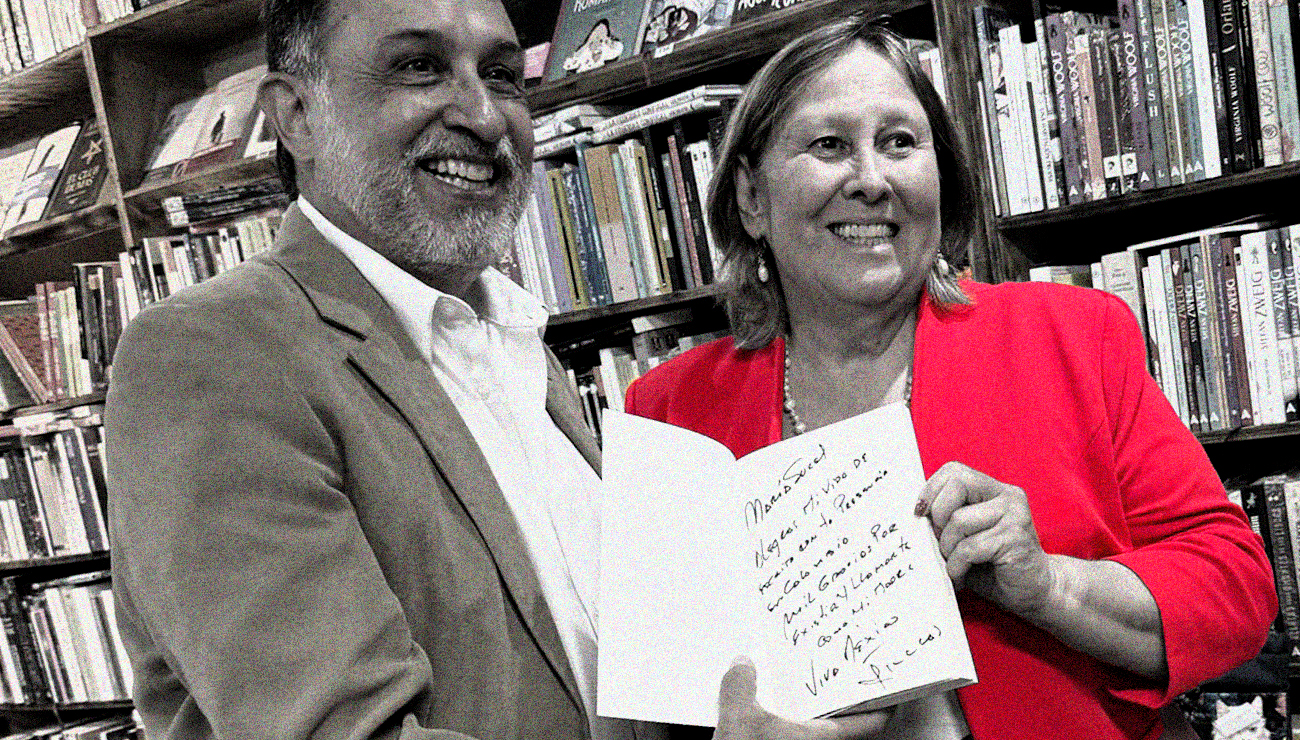
Visions and testimonies: Christine Stiefel and the manifestos in William Castano-Bedoya’s novel
Author: ©2024 William Castano-Bedoya
Reflections and impressions on the novel, from the readers’ point of view.
“Through his experience and observation in this insightful and well-written novel, Steve Newman concludes that the ‘Life Amendment’ should be on par with the freedoms of speech, press, religion, assembly, and petition. Newman argues that it’s not necessary to dilute or alter the Second Amendment, but rather to create a new one, the Life Amendment, which defends the freedom and choice of American citizens to live free from the presence of assault weapons, except those in the hands of military, police, or intelligence forces.”
—Christine Stiefel—
Christine Stiefel’s journey with William Castano-Bedoya’s novel “We the Other People: The Beggars of the Mercury Lights” began when she encountered the work. The impact extended beyond the narrative arc, resonating deeply as she reached the final pages and encountered the closing phrase “The End.” On the following page, she found a striking statement by the author: “The following pages include the notes Steve left on Emmie’s bed.” This unexpected epilogue ignited Christine’s spirit into action. Without hesitation, she ordered additional copies of the novel online and distributed them among her close circle, transcending borders.
Christine was invited as a key panelist for the presentation of “The Beggars of the Mercury Lights: We the Other People” at the Coral Gables Library in Florida on June 26th. Her pivotal role involved representing readers through her moving testimony. Christine’s interventions focused on explaining the content of the manifestos, in two parts. She contends that the manifestos are the most important part of the novel, serving as an epilogue. In her speech, following the moderator’s questions, Christine highlighted the most significant themes of the manifestos, starting with part one, dedicated to the creation in the US Constitution of “The Life Amendment: the right to live without fear.”
Starting off, Christine emphasized the thoughts of Steve Newman, the novel’s main character, regarding the current amendments of the constitution. Steve began by evaluating the wisdom of the first 10 amendments or the Bill of Rights, but focused on the three that were most important to him:
“Steve Newman believes that the First Amendment, freedom of expression, press, religion, assembly, and petition, is undoubtedly the cornerstone of our democracy, guaranteeing that our fundamental freedoms are protected.”
“Mr. Newman believes that the Second Amendment, the right to bear arms, which seeks to ensure the right to defend oneself and one’s property, has historical significance, but raises concerns about its applicability in a modern context, especially with the prevalence of advanced weaponry and associated social threats.”
“The other amendment that Steve Newman discussed in his notes to Emily and that may need attention is the Fourth, which covers the right to records and arrests, referring to the ban on police entering homes and properties without a search warrant. Steve Newman believes that improving the Fourth Amendment with clauses against police brutality would address contemporary concerns about law enforcement practices while maintaining the original intent of the amendment.”
“In his conclusion about the review of the Bill of Rights, Steve argues that the Constitution was written in the context of the world 233 years ago and, regarding the Second Amendment, states that it was created circumstantially, according to life in the midst of struggles to secure the independence of the original thirteen British colonies from Britain. He is aware that the Constitution and the first 10 amendments were written when weapons were much less lethal and accurate,” comments Christine.
MANIFESTO PART ONE: THE LIFE AMENDMENT: THE RIGHT OF AMERICAN CITIZENS TO LIVE WITHOUT FEAR
However, Christine asserts that the most important point about the manifestos is, without a doubt, the proposal from Steve Newman for the creation in the United States Constitution of the “Life Amendment.” “He argues that we must ensure people’s right to live without fear from our Constitution. It is important to remember that our Constitution is 233 years old, so it has stood the test of time, but so far we have 27 amendments. These additions were made to reflect changes in our attitudes and circumstances.”
“Newman believes that the Second Amendment was drafted at a time when American society was not as it is today, populated by new enemies who use assault weapons thousands of times more advanced and lethal than pistols and other weapons from the Revolutionary War period.”
“Through his experience and observation in this insightful and well-written novel, Steve Newman concludes that the ‘Life Amendment’ should be on par with the freedoms of speech, press, religion, assembly, and petition. Newman argues that it’s not necessary to dilute or alter the Second Amendment, but rather to create a new one, the Life Amendment, which defends the freedom and choice of American citizens to live free from the presence of assault weapons, except those in the hands of military, police, or intelligence forces. These agencies include the Department of Homeland Security (DHS), the Federal Bureau of Investigation (FBI), the Bureau of Alcohol, Tobacco, Firearms and Explosives (ATF), the United States Secret Service Uniformed Division (USSS), the Transportation Security Administration (TSA), and the National Security Agency (NSA). This amendment would safeguard citizens’ freedom to report credible threats resulting from the mere presence of assault weapons in neighborhoods.”
“Just as individuals registered as sex offenders are located, marginalized, and prohibited from living near schools or neighborhoods that legally forbid their presence or proximity, current and potential owners of assault weapons should be known to the community before acquiring or possessing such weapons. Newman effectively asserts that communities should have the power and freedom to express credible fears about potential future acts against them. It will be the responsibility of communities to decide which weapons exist in their neighborhoods in the hands of unqualified citizens, as he believes they should only be in the hands of citizens recognized by the government as trained militia to professionally defend neighborhoods in extreme cases where state forces fail to do so, following hierarchical police and national defense protocols.”
“Newman considers including the obligation of weapons manufacturers and politicians to report direct or indirect provision of funds to political campaigns. This amendment supports citizens’ right to vote or abstain from voting for candidates committed to civilian armament under the Second Amendment.”
But Steve Newman goes further, proposing sanctions for those who support campaigns funded by arms, linking them to mass shootings. “In other words, Mr. Newman suggests that it should be considered a related or connected crime for which they should be held civilly or criminally responsible. We are talking about massacres of innocent people where not only the person with the assault weapon should be considered responsible in some way for the crime, but the entire chain of candidate selection, including voters. It is suggested that ballots distinguish candidates funded by these industries and educate the public to distinguish between those who receive funding from these toxic sources and those who do not. In this way, the secret and voluntary vote will be maintained as it is now.”
“The slogan ‘No sanctions if there are no massacres’ leaves voters free and uncommitted to choose candidates not funded by the firearms industry for their political campaigns, but commits those who still believe that assault weapons protect their lives instead of sowing death in neighborhoods. Steve believes that in each massacre, the entire chain of actors in each state is compromised, knowing that money from the firearms industry is involved, they were elected, nominated, or attempted to elect.”
SPECTRUM OF SANCTIONS IF THERE ARE MASSACRES
“Criminal charges will be applied if any of the parties, donors linked to the arms industry, political action committees (PACs), fundraisers for political campaigns, and candidates who accept contributions from the arms industry that do not adhere to the transparency code, publicly announcing the delivery or receipt of these funds to political campaigns do not reveal the nature of the financing. Likewise, no matter if the nature of the financing is revealed, prorated social responsibility sanctions will apply, covering legal costs, compensation for victims, and all related expenses in each case until it officially closes and settles. This civil liability includes voters who voted for elected or unelected candidates who are sponsored by the arms industry in their election or reelection campaign.”
MANIFESTO PART TWO: WORKERS’ RIGHTS
Regarding the second part of the labor rights, Christine emphasized that Steve Newman advocates for American workers in the second manifesto, making those politicians or public officials responsible for preventing citizens from receiving their constitutional benefits in a timely manner.
In the novel, Steve faces the inefficiency of the state unemployment rights payment system, because the extreme right-wing former governor, in his paranoia that workers are abusing compensation systems, created a system that was impossible to solve for employees in need of claiming their rights, which have been paid with their taxes and contributions to social security. This former governor, nominated for the Federal Senate and the winner, hoists an impeccable employment creation policy, but nevertheless, created software that assured the lowest unemployment rates. In other words, he cheated on citizens who chose him and, of course, caused disasters for the most needy workers when this negligence exploded as a result of the pandemic. Steve exposes in the manifesto: “Any attempt to complicate the processes of constitutional rights must be subject to legal consequences.”
“Complicating a process means delaying or even, sometimes, effectively denying rights. If this is done on purpose, should there be consequences? Steve Newman states that it should be.”
“The national judiciary must determine if both the former governor and the staff directly involved in the solution to the complication system deliberately complicated the process of claims for benefits…”
“Steve Newman argues that ‘political malpractice, similar to medical or legal malpractice, involves the breach of duty of an elected official.’ He argues that politicians, as public servants, must be responsible for their actions or, in this case, deliberate obstruction.”
“Steve Newman argues that the government failed to fulfill people’s constitutional rights.”
“To the question, ‘The System Failed. And what?’ Steve comments that if a person fails in their duties, there are consequences, but when someone deliberately complicates a system to gain political advantage, Steve Newman argues that there should be serious repercussions. Deliberately obstructing the law involving the rights and lives of citizens should also have consequences. And Mr. Newman addressed the idea of restitution when workers’ rights have been obstructed.”
“If malpractice is evident, then not only should those who committed the offense be held accountable, but also those who suffered should be compensated. Steve Newman continues to say that compensation should include the delay in the distribution of their benefits but also ‘for the suffering and economic ruin they have endured as a result.'”
In conclusion, Christine states that Steve Newman’s ideas have developed from experience and observation shown throughout the novel, with a view to progress, advancing in our society toward current needs, as have many of our constitutional laws and amendments.
Christine Stiefel, president and founder of The Wildflower Foundation, Inc. since 2009 and co-CEO of Stiefel Laboratories, Inc., Asia-Pacific, is known for her social sensitivity. She holds a bachelor’s degree from Siena College, NY, and a Master of Science (MSc) from San Diego State University, San Diego, CA.
The Sky Also Belongs to the Beggars
Once upon a time in Grámmata, Medellín
A Planetary Choreography: Each Tragedy Serves as a Screen to Hide Another
William Castaño
William is a Colombian-American writer who captivates readers with his ability to depict both the unique experiences and universal struggles of humanity. Hailing from Colombia’s Coffee Axis, he was born in Armenia and spent his youth in Bogotá, where he studied Marketing and Advertising at Jorge Tadeo Lozano University. In the 1980s, he immigrated to the United States, where he naturalized as a U.S. citizen and held prominent roles as a creative and image leader for projects with major corporations. After a successful career in the marketing world, William decided to fully dedicate himself to his true passion: literature. He began writing at the turn of the century, but it was in 2018 when he made the decision to make writing his primary occupation. He currently resides in Coral Gables, Florida, where he finds inspiration for his works. William’s writing style is distinguished by its depth, humanity, and authenticity. Among his most notable works are ‘The Beggars of Mercury’s Light: We the Other People’, ‘The Galpon’, ‘Flowers for María Sucel’, ‘ Ludovico’, and ‘We’ll meet in Stockholm”.









